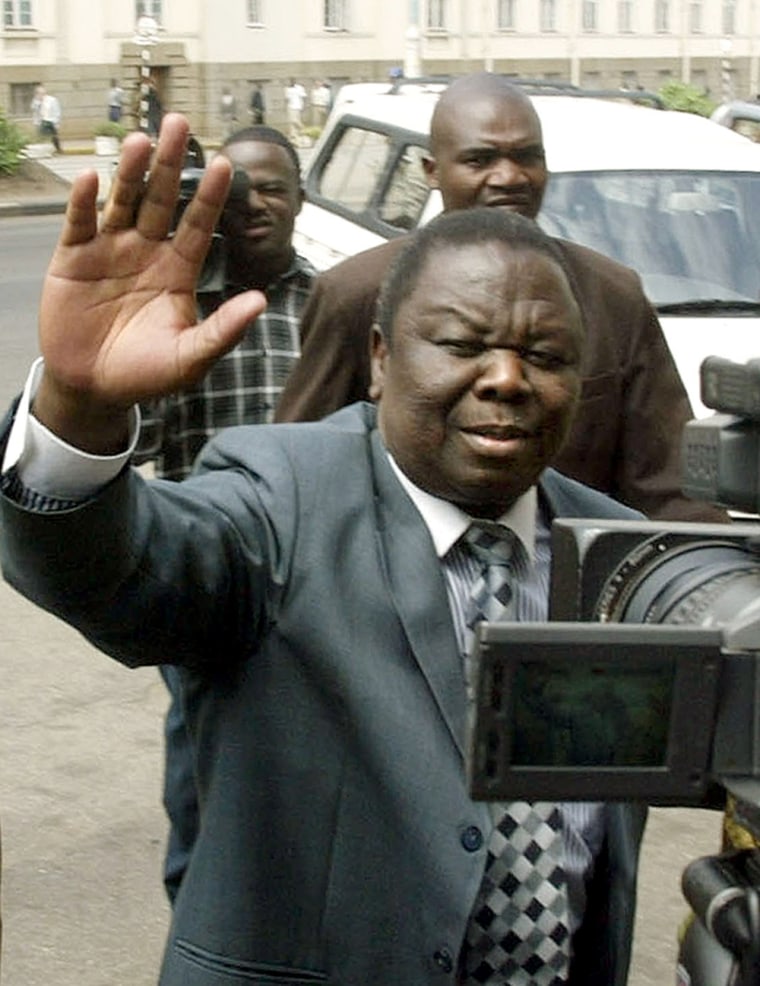A Harare court found opposition leader Morgan Tsvangirai innocent of treason charges Friday, a major victory for a man who had claimed the case against him was a government bid to sabotage his political aspirations.
The charges stemmed from state accusations Tsvangirai plotted to kill President Robert Mugabe with the help of a Canada-based political consultant.
Tsvangirai had been charged with treason two weeks before he contested presidential polls narrowly won by Mugabe in March 2002. Tsvangirai’s Movement for Democratic Change described the yearlong trial, which ended Feb. 26, as political persecution.
Tsvangirai could have faced the death penalty. The trial was widely seen in the southern African nation as a government attempt to use the cover of law to get rid of Mugabe’s main challenger and discredit the Movement for Democratic Change, the main opposition party.
Since his victory, Mugabe has moved to tighten his grip on power, packing the courts with judges loyal to his party, closing the country’s independent press and silencing dissent with a security law that restricts freedom of speech and association.
At the same time, he has used police and other security forces to harass opponents and journalists and deployed state-controlled militias of youths and purported veterans of Zimbabwe’s war against white rule to violently suppress dissent.
The highly charged case centered on a secretly recorded videotape of a meeting between Tsvangirai and Canada-based political consultant Ari Ben Menashe on Dec. 4, 2001 in which the opposition leader allegedly sought help to kill Mugabe.
Government ploy?
Tsvangirai denied the charges, insisting they were a government ploy to frame him and discredit the opposition ahead of the presidential poll.
During the trial, state prosecutors withdrew allegations Tsvangirai asked Ben Menashe’s help to “murder” or “assassinate” Mugabe.
Tsvangirai said he mentioned Mugabe’s “elimination” on the grainy and barely audible 4½ hour tape referring only to Mugabe’s possible defeat in the upcoming presidential polls and any subsequent change of government.
Mugabe narrowly won the March 2002 vote, which international observers said was swayed by political violence, corruption and vote rigging.
George Bizos, a South African anti-apartheid attorney who first defended Nelson Mandela more than 40 years ago, defended Tsvangirai in the trial. He said he sought Ben Menashe’s help in good faith to raise support and funds for the opposition in the United States and Canada ahead of the polls.
Tsvangirai’s defense team argued Ben Menashe was already working for the Zimbabwe Central Intelligence Organization in a bid to entrap the opposition leader when the Montreal meeting took place.
